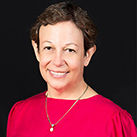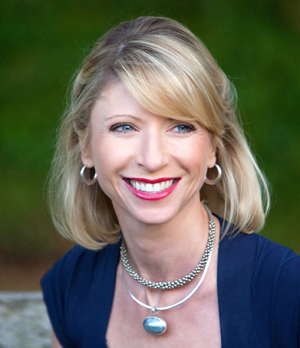
Henry Alexander Murray was an American psychologist at Harvard University. From 1959 to 1962, he conducted a series of psychologically damaging and purposefully abusive experiments on minors and undergraduate students. One of those students was Ted Kaczynski, later known as the Unabomber.

The UBC Sauder School of Business is the business school of the University of British Columbia. The faculty is located in Vancouver on UBC's Point Grey campus and has a secondary teaching facility at UBC Robson Square downtown. UBC Sauder has been accredited by AACSB since 2003. The current Dean is Darren Dahl.

Rakesh Khurana is an Indian-American educator. He is a professor of sociology at Harvard University, a professor of leadership development at Harvard Business School, and the dean of Harvard College.

Lisa Feldman Barrett is a Canadian-American psychologist. She is a University Distinguished Professor of psychology at Northeastern University, where she focuses on affective science and co-directs the Interdisciplinary Affective Science Laboratory. She has received both of the highest scientific honors in the field of psychology, the William James Fellow Award from the Association for Psychological Science for 2025, and the Award for Distinguished Scientific Contributions from the American Psychological Association for 2021. Along with James Russell, she is the founding editor-in-chief of the journal Emotion Review. Along with James Gross, she founded the Society for Affective Science.

Adele Dorothy Diamond is a professor of neuroscience at the University of British Columbia, where she is currently a Tier 1 Canada Research Chair in Developmental Cognitive Neuroscience. One of the pioneers in the field of developmental cognitive neuroscience, Diamond researches how executive functions are affected by biological and environmental factors, especially in children. Her discoveries have improved treatment for disorders such as phenylketonuria and attention-deficit hyperactivity disorder, and they have impacted early education.
Teresa M. Amabile is an American academic who is the Edsel Bryant Ford Professor of Business Administration in the Entrepreneurial Management Unit at Harvard Business School.

Susan Pinker is a Canadian psychologist, author, and social science columnist for The Wall Street Journal. She is a former weekly columnist for The Globe and Mail, and has also written for The New York Times, The Guardian, and The Times of London. Her first book, The Sexual Paradox, was awarded the William James Book Award in 2010 and was published in 17 countries. Her book The Village Effect was a Canadian bestseller and an Apple 2014 nonfiction best pick. Her work has been featured in The Economist, The Financial Times, and Der Spiegel.

Amy Joy Casselberry Cuddy is an American social psychologist, author and speaker. She is a proponent of "power posing", a self-improvement technique whose scientific validity has been questioned. She has served as a faculty member at Rutgers University, Kellogg School of Management and Harvard Business School. Cuddy's most cited academic work involves using the stereotype content model that she helped develop to better understand the way people think about stereotyped people and groups. Though Cuddy left her tenure-track position at Harvard Business School in the spring of 2017, she continues to contribute to its executive education programs.
The Behavioural Insights Team (BIT), also known unofficially as the "Nudge Unit", is a UK-based global social purpose organisation that generates and applies behavioural insights to inform policy and improve public services, following nudge theory. Using social engineering, as well as techniques in psychology, behavioral economics, and marketing, the purpose of the organisation is to influence public thinking and decision making in order to improve compliance with government policy and thereby decrease social and government costs related to inaction and poor compliance with policy and regulation. The Behavioural Insights Team has been headed by British psychologist David Halpern since its formation.

Elke U. Weber is a Professor of Psychology and Public Affairs at Princeton University where she holds the Gerhard R. Andlinger Professorship in Energy & the Environment. Prior to moving to Princeton in 2016, she spent 19 years at Columbia University, where she founded and co-directed the Earth Institute's Center for Research on Environmental Decisions and the Columbia Business School's Center for Decision Sciences.

Kay Deaux is an American social psychologist known for her pioneering research on immigration and feminist identity. Deaux is Distinguished Professor Emerita at the Department of Psychology at the Graduate Center of the City University of New York (CUNY). According to Brenda Major, Deaux's work centers on the question of how social categories affect one's psychological makeup, social behavior, and life outcomes, while emphasizing the subjectivity of people's identities and experiences and the larger social context.
Shelley Hymel is a developmental/educational psychologist and professor at the University of British Columbia (UBC) in Vancouver, British Columbia, Canada. Her research focuses on issues related to school bullying, children's peer relationships, and social-emotional learning.
Paula R. Pietromonaco is an American psychologist and principal investigator of the Growth in Early Marriage Project at University of Massachusetts, Amherst. She is the editor-in-chief of the journal Emotion, as well as the associate editor of Journal of Personality and Social Psychology: Interpersonal Relations and Group Processes section.

Elizabeth Warren Dunn is a Canadian social psychologist and a Professor of Social Psychology at the University of British Columbia (UBC). In 2015, Dunn was elected a member of the College of New Scholars, Artists and Scientists within the Royal Society of Canada.
Abigail Marsh is an American psychologist and neuroscientist who works as a professor at Georgetown University's Department of Psychology and the Interdisciplinary Neuroscience Program, where she is the director of the Laboratory on Social and Affective Neuroscience.
Katherine L. Milkman is an American economist who is the James G. Dinan endowed Professor at The Wharton School of the University of Pennsylvania. She was previously the President of the Society for Judgment and Decision Making.

Modupe Nyikoale Akinola is an American organizational scholar and social psychologist who examines the science of stress, creativity, and how to maximize human potential in diverse organizations. She is currently the Barbara and David Zalaznick Professor of Business at Columbia Business School, where she is the Director of the Sanford C. Bernstein & Co. Center for Leadership and Ethics.
Liisa Ann Margaret Galea is a Canadian neuroscientist who is a professor of psychology at the University of British Columbia. She is a member of the Centre for Brain Health and Director of the Graduate Programme in Neuroscience. Her research considers the impact of hormones on brain health and behaviour.
Sherry Jueyu Wu is an Assistant Professor of Management and Organizational Behavior at the University of California, Los Angeles (UCLA) Anderson School of Management. in Westwood, California and the 2020 recipient of the Cialdini Prize from the Society for Personality and Social Psychology (SPSP) for her field research in group dynamics and authority. She conducts large-scale field experiments concerning group influence over long-lasting behavioral changes and decision processes under resource disparity and social inequality.

Sunita Sah is a professor of management and organizations at Cornell University's SC Johnson Graduate School of Management, and a core faculty fellow in the new Cornell Health Policy Center. Her book, Defy: The Power of No in a World that Demands Yes, will be published by Penguin Random House in January 2025. Sah is the director of Cornell University's Academic Leadership Institute. She was formerly the KPMG Professor of Management Studies at Cambridge Judge Business School of the University of Cambridge, where she remains an Honorary Fellow.











